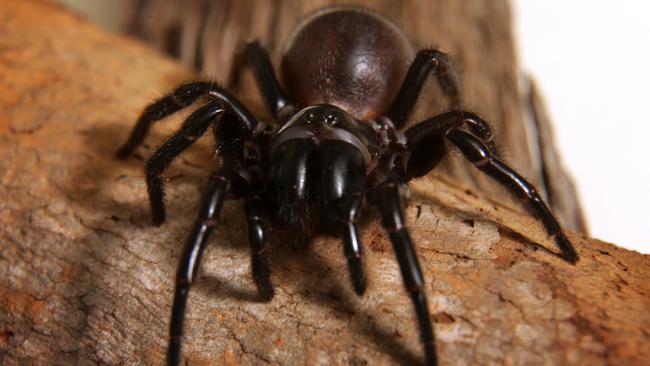Fungus armed with funnel-web venom wipes out malaria mosquitoes
A genetically modified fungus containing venom from a deadly Australian spider wipes out disease-carrying mosquitoes within days.

The fight against malaria has been given a significant boost after scientists made a genetically modified fungus containing spider venom and found that it wiped out disease-carrying mosquitoes within days.
Under test conditions in a simulated village inside a large dome containing plants, huts and small pools of stagnant water where the flies bred, researchers found that 99 per cent of mosquitoes exposed to the modified fungus died, an unexpected high fatality rate.
The fungus naturally infects Anopheles mosquitoes that spread malaria. The toxin, an insecticide called Hybrid, comes from the venom of the Australian Blue Mountains funnel-web spider.
The tests were carried out in a specially constructed “mosquito dome” in rural Burkina Faso, west Africa, sealing in an area the size of three tennis courts with walls and a roof of double-layered mosquito netting. Fungal spores were mixed with sesame oil and wiped on black cotton sheets so that when the mosquitoes landed they were exposed to the spores.
The research raises the prospect of significant progress against malaria, which infects 220 million people a year and kills 435,000. The figure was five times higher a century ago, with a high number of children among them. Seventy per cent of global cases are in ten African countries plus India.
Until now efforts to eradicate malaria by reducing the number of mosquitoes had been limited to the use of toxic sprays and nets. One challenge in the fight against malaria is the declining share of families that use antimosquito sprays in their homes.
Last week the World Health Organisation declared Algeria and Argentina to be free of malaria, bringing to 38 the number of countries officially clear of the disease. However, the emergence of new strains of malaria resistant to the available treatments is a stumbling block to progress.
“We’re very excited,” Raymond St Leger, co-author of the research, said. “The results are very good. This could save many lives.”
More work will have to be done by researchers especially as genetic modification remains controversial, with critics warning that not enough is known about potential spillover from the modification to other animal species, including humans.
The research, published last Friday in Science, the peer-reviewed journal of the American Association for the Advancement of Science, was carried out by scientists from the University of Maryland and the Research Institute of Health Sciences in Burkina Faso.
The breakthrough was in manipulating a fungus, Metarhizium, to introduce genetic material for the toxin isolated from the Australian spider. Unlike a venomous spider that bites victims, the fungus releases the toxin only when it is in contact with the body fluids of a mosquito.
In 2005 researchers in Tanzania found that fungi could be fatal to mosquitoes over long periods, but the genetically modified version appears to be much more efficient as its effect is so immediate.
Brian Lovett, one of the researchers from the University of Maryland, said that the aim of the work was not the extinction of mosquitoes but to break the cycle of transmission for the pathogen that caused malaria.
Scientists have identified more than 3500 species of mosquito worldwide but only a small proportion, believed to be about 100, spread malaria.
The Times



To join the conversation, please log in. Don't have an account? Register
Join the conversation, you are commenting as Logout